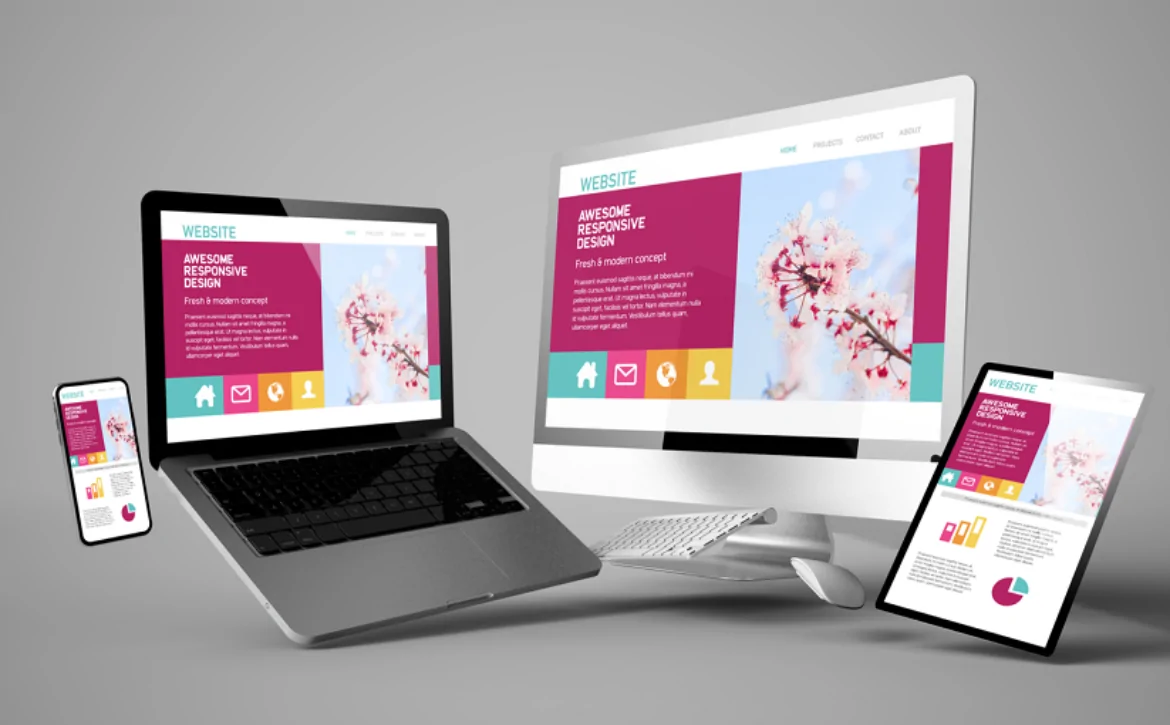Why Custom Web Design Beats Templates Every Time In 2025
Picture this. You have spent months building your business idea, refining your products, and carefully shaping your brand message. You are excited to share it with the world, so naturally you need a website. You start exploring your options and notice the endless supply of ready-made templates online. They look attractive at first glance and they promise a fast and affordable way to launch your site. The temptation is real. Who would not want a shortcut when time and resources are limited? Yet as you scroll through template after template, a strange realization sets in. Custom web design: Every option feels familiar. You may not notice it immediately, but many of these designs are already being used by countless other businesses.
Suddenly, the idea of standing out in a crowded digital world feels a little less possible. This is where the story of personalized web design begins to shine. Instead of choosing a pre-built mold that thousands of others have picked, you can create something that feels alive, personal, and true to your vision. A personalized web design template might get you online, but personalized web design gives your brand its voice. It becomes more than just a digital storefront. It becomes an experience that reflects your uniqueness and helps visitors remember you. This is not just about looks. It is about building trust, offering seamless navigation, and giving people a reason to stay longer on your site. In a world where attention spans are shrinking, your website design has to be more than ordinary. That is why custom always beats template.
The Limitations of Custom Web DesignTemplates
Templates can seem like a blessing when you are in a rush. They often come free or at a low price, and they can be installed with a few clicks. However, the simplicity that makes them appealing also becomes their biggest drawback. Templates are designed to serve as many people as possible. This means they are not tailored to your brand story, your audience, or your long-term goals. A template site might look professional at first, but it rarely captures the heart of your business. Visitors who have seen similar layouts elsewhere may instantly feel like your site is forgettable. What is worse, customizing a template often requires just as much time as building from scratch, especially when the layout limits what you can change. Even if you use personalized web design software to edit, you may hit walls that stop your creativity.
The Power of Personalized Web Design
Personalized web design is like having a suit tailored to fit only you. It takes into account your brand colors, your voice, and the journey you want visitors to experience. Rather than trying to adapt your story to fit a pre-designed frame, everything is crafted from the ground up to highlight your strengths. The result is a site that feels authentic and memorable. When done right by a custom web design agency or skilled professional, your site does more than look beautiful. It functions seamlessly, loads faster, and can be optimized for search engines more effectively than most template sites. In fact, businesses that invest in a unique website design often see better engagement and longer visits, simply because the site feels inviting.
User Experience That Builds Trust
A great website is not only about how it looks. It is about how people feel when they use it. Personalized web design allows you to guide users through a smooth experience, from the first click to the final action. Whether they are buying a product, signing up for a newsletter, or reading your blog, every interaction feels intuitive. On the other hand, template designs may pack too many features or not enough. Visitors can get frustrated if the navigation is clunky or if the design does not work well across different devices. Custom websites are built with user journeys in mind, ensuring that every detail supports trust and credibility.
Growth and Flexibility for the Future
One of the most overlooked benefits of personalized web design is flexibility. Your business will evolve, and your website must grow with it. With templates, you may eventually hit a wall where adding new features or scaling becomes complicated. You might even find yourself migrating to a completely new system later, costing you more time and money. A custom solution is future-ready. With proper planning and the right use of personalized web design software, you can easily add new sections, integrate advanced tools, and adjust layouts without starting over. This adaptability is crucial in a fast-changing digital landscape.
Why Businesses Choose Custom Web Design Every Time
When weighing the decision between a quick template and a tailored website, most successful businesses lean toward personalized web design. They understand that their website is often the first impression a customer has of their brand. Settling for a template might save money upfront, but it can cost more in missed opportunities and lost connections. Even small businesses that once leaned on custom web design free options are now realizing the power of investing in a unique presence. Partnering with a custom web design agency or expert is not just an expense, it is an investment in credibility, visibility, and long-term growth.
In the end, your website is not just a digital placeholder. It is the stage where your brand story unfolds, where visitors decide within seconds whether to trust you or leave. Templates may offer a shortcut, but shortcuts rarely lead to lasting impressions. Personalized web design gives your brand the freedom to be original, the flexibility to adapt, and the power to stand out in a crowded online world. Whether you use advanced custom web design software or work with a professional agency, the outcome is the same. A site that truly belongs to you. In the race for online attention, uniqueness wins every time. And that is exactly why personalized web design will always beat templates.



